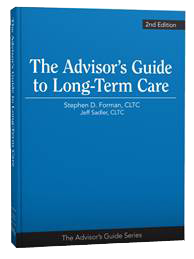What is Long Term Care?
Ongoing Living Assistance
Because services are provided both to chronically ill individuals over an extended period of time, and to those intended to recover over a shorter duration, long-term care can encompass a broad range of services from all categories of care providers.
Care can be received in one’s own home, in the community (eg. in Adult Day Care or Adult Foster Homes), in residential care facilities such as Assisted Living, in Skilled Nursing Facilities, or in Continuing Care Retirement Communities which combine elements of many other care modalities.
Most long term care is considered “custodial” in nature, which is help with Activities of Daily Living (ADL’s):
- Eating
- Bathing
- Dressing
- Transferring (to or from a bed, or chair)
- Toileting
- Continence
Long term care services can also include assistance with Instrumental Activities of Daily Living (IADL’s) such as:
- Meal preparation
- Shopping
- Housekeeping
- Laundry
- Bill paying
- Medication management
Depending on the deterioration of one’s functioning, it may be possible to get by with unpaid assistance from family, friends, neighbors or volunteers ("informal care"). On the other hand, you may require a Homemaker / Companion to visit from a professional agency, or the services of a Certified Nursing Assistant (CNA), licensed home health aide, physical, occupational or speech therapist, or even an LPN or RN ("formal care").





